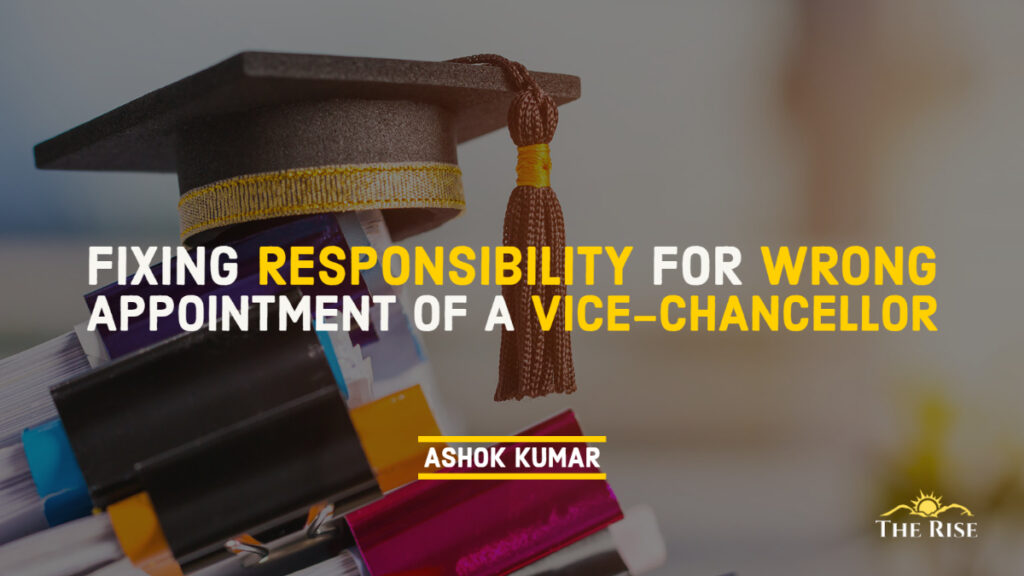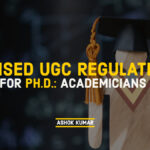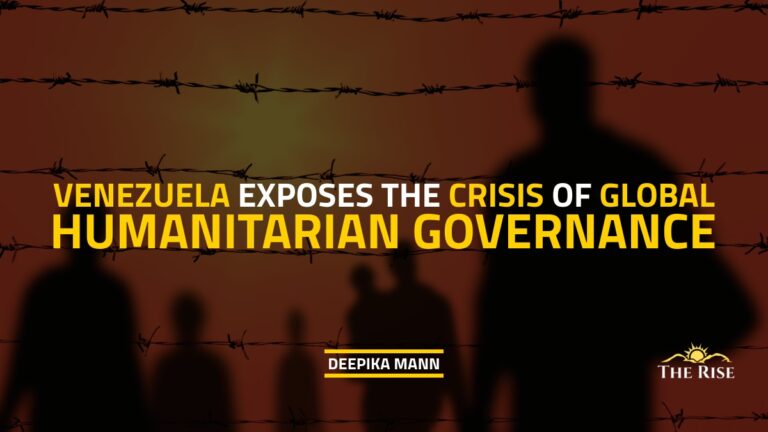Recently, on 3rd March 2022, Hon’ble Supreme Court has held that a state cannot legislate the appointment of a Vice-Chancellor contrary to the provisions of the UGC regulations. Therefore, if any state does not follow the apex court judgment, the appointments shall be unconstitutional. It is very unfortunate when the appointment of the Vice-Chancellor gets challenged after the selection, and the honourable courts turn down the appointment of the Vice-Chancellor on the basis of either not following the rules and regulations of the Act or the selected Vice-Chancellor not possessing the minimum qualifications as per the rules made by the UGC. If a Vice-Chancellor is removed by the Hon’ble High Court, a serious question arises in the mind – who should be held responsible for such a fault?
The post of Vice-Chancellor of a university is a very important post so far as the university is concerned. Being a leader and head of the institution, the Vice-Chancellor of the university plays a very critical role. While academic qualifications, administrative experience, research credentials, and track record could be considered basic eligibility requirements, the greater qualities of the Vice-Chancellor would be one who is a true leader and a passionate visionary. A Vice-Chancellor needs to be one who understands and handles the affairs of the university as ethical business and maintains a pellucidity in his conduct towards the betterment of the university as well as the students therein. A Vice-Chancellor should be one who can inspire students and guarantee the entry of high-quality teachers into the university system. A Vice-Chancellor, being a ‘teacher’ as well as an ‘administrator’, functions as a bridge between the executive and academic wings of a university, heading both of them.
For the selection of the post of Vice-Chancellor in any university, there should be a search committee as per the rules of the University Grants Commission (UGC), in which the committee chairman is nominated by the Honourable Chancellor, one member is nominated by the UGC, and one member is nominated by the executive council of the respective university. It has been observed that many of the states either do not follow the regulations of the UGC or they have their own rules and regulations. In some states, one of the members of the search committee is nominated by the State Government. In one of the states, the Chief Justice of the High Court or a member nominated by him/her is a member.
Also Read: Scrutinizing the appointment of Vice-Chancellors
Hon’ble Supreme Court has held that a state cannot legislate the appointment of a Vice-Chancellor contrary to the provisions of the UGC regulations. Therefore, if any state does not follow the apex court judgment, the appointments shall be unconstitutional.
It is a matter of concern that different states have different policies for the formation of search committees. Some states do not follow the UGC guidelines. Recently, on 3rd March 2022, Hon’ble Supreme Court has held that a state cannot legislate the appointment of a Vice-Chancellor contrary to the provisions of the UGC Regulations. Therefore, if any state does not follow the apex court judgment, the appointments shall be unconstitutional.
Presently, in many states, applications are invited for the post of Vice-Chancellor through an advertisement in the newspapers and on the university website. Applications received are scrutinized. The committee has the responsibility to examine their academic, administrative, and other experiences. The members of the search committee recommend a panel of 3 or 5 members for the post of Vice-Chancellor. This panel is either sent to the Chief Minister of the state or to the Chancellor of the state. In many states, the Honourable Chancellor interacts with the candidates recommended by the search committee. The name of the Vice-Chancellor for the concerned university is then selected from the panel of 3 or 5 members.
It is very unfortunate when the appointment of the Vice-Chancellor gets challenged after the selection, and the honourable courts turn down the appointment of the Vice-Chancellor on the basis of either not following the rules and regulations of the Act or the selected Vice-Chancellor not possessing the minimum qualifications as per the rules made by the UGC.
Also Read: Educational Supremacy in ‘Vishwaguru’ India: A Long Way to Go
The office must ensure whether the applicants have sent all the requested documents or not. All those documents should be examined seriously to check whether there is any deficiency in the documents or not. If there is any deficiency in the documents, they should be informed to the members of the search committee. It should be the duty of the members of the search committee to carefully examine all the documents and legal advice should be taken if there is any difference of opinion. While discussing this issue with some of the members of the search committee they showed their limitations to examine the documents of all the candidates. My opinion is that: the search committee MUST satisfy themselves after verifying at least the documents of the names recommended for the selection of the Vice-Chancellor. Finally, the Hon’ble Chief Minister or the Hon’ble Governor’s office may decide the name of the person selected.
If a Vice-Chancellor is removed by the Hon’ble High Court, a serious question arises in the mind – who should be held responsible for such a fault?
After going through the process of selection of the concerned Vice-Chancellor, if a Vice-Chancellor is removed by the Hon’ble High Court, a serious question arises in the mind – who should be held responsible for such a fault? It is often pointed to the Hon’ble Governor or the Hon’ble Chief Minister, but it has never been seriously considered as to what is the role of the members of an officially appointed search committee. Generally, in this entire selection process, the foremost responsibility should be of the office in which the applications are received.
Also Read: Quality Education: A Luxury or A Fundamental Right?
I understand that the members of the search committee are prima facie guilty. In this context, I talked to some of the members of the search committee personally, and they expressed that they do not investigate the applications received. The list of the candidates to be proposed is already given to them by the concerned authorities. The honourable members only sign. In some cases, if there is a conflict of interest between the members, then each member gives one name of their choice. If this is true, it is a very serious matter.
I agree that it is a very challenging matter for any university to choose the best person as a Vice-Chancellor through this process but I believe that if there are rules for the selection of the Vice-Chancellor, then rules should be followed completely.
Also Read: Challenges of Designing a New Regulatory Framework in Higher Education
Further, if any judicial process has been started against the selection of the Vice-Chancellor or in the selection of the head of any institution, then the decision of the court should come as soon as possible. As long as an unskilled, unqualified person holds the highest position of any institution, the future of that institution remains a matter of concern. Therefore, the Hon’ble Court should take its decision at the earliest.
Appointment of Vice-Chancellor of a University even under state legislation cannot be contrary to UGC regulations.
Appointment of Vice-Chancellor of a university even under state legislation cannot be contrary to UGC regulations: The apex court noted that in cases where the state legislature is repugnant to the central legislation, central legislation is to prevail as per Article 254 as ‘education’ is an item in the Concurrent List.
“It is high time that the state governments adopt the UGC regulations and amend the state legislation appropriately so that no room is left for any manipulation, arbitrariness, nepotism, and favouritism, before any fresh appointment as a Vice-Chancellor in the state and the universities thereunder are made.”
Disclaimer: The views expressed in this article are of the author solely. TheRise.co.in neither endorses nor is responsible for them.
About the author
Prof. Ashok Kumar is former Vice-Chancellor of Deen Dayal Upadhyaya University, Gorakhpur (U.P.) & CSJM University, Kanpur, (U.P.), Nirwan University, Jaipur, Rajasthan, and Shri Kallaji Vedic University, Nimbahera, Rajasthan. He is President of the Social Research Foundation, International Society of Life Sciences.




























Pingback: Decadence of University Education in India - TheRise.co.in
Pingback: Heading Towards Extinction of Formal Education? - TheRise.co.in
Pingback: EDUCATION POLLUTION IN INDIAN CONTEXT - TheRise.co.in